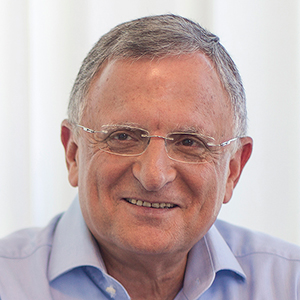I’ve been active in the FinTech space for over four decades. The common denominator of the successful companies I’ve been involved with has always been a deep understanding of the financial side of the problem they were addressing – what are the financial drivers of their customers, be they financial institutions, SMBs or consumers, and what are the business problems they are looking to solve.
Technology is integral in creating long-term moats, but even more important is a deep understanding of the financial markets – market drivers, business practices, standards to adhere to, and the trust you build with stakeholders.
The Finance-Tech Team
It is very rare to meet a team that both understands the dynamics of financial markets and has the proven ability to apply deep technologies to disrupt a market.
I first met the founders of Pagaya 4 years ago, when they were raising their seed round. I immediately realized that they possess this rare combination – they all had hands-on experience in the financial markets and in managing financial assets, but also had the ability to apply state-of-the-art technologies to their business.
Gal, Avital, and Yahav have a vision to disrupt a huge market that is currently not sufficiently leveraging technology. They’re attempting to build an innovative, AI-driven, next-generation, fixed income asset management firm that can scale fast and become a market leader.
Not the Business Model VCs are Used to Backing
Their vision isn’t limited to the application of AI technologies to this market, but also to adopting a business model that speaks the language of institutional investors. This is quite uncommon for VC-backed technology companies, which made it somewhat challenging for Pagaya to raise their initial rounds – it wasn’t the classical business model VCs are used to.
With this vision in mind, the Pagaya team was able to attract as customers even the most conservative financial institutions, including banks, insurance companies, large asset managers, and sovereign wealth funds.
It takes a deep understanding of these players to be able to convince them to invest hundreds of million dollars with Pagaya. This requires gaining their trust – above and beyond the net returns. It requires adhering to their ways of doing business, including regulatory and compliance norms, and working with agencies to rate the financial products Pagaya is bringing to market.
The founders came up with a great path to address the consumer credit markets – they started by originating loans through the emerging online players, some of which are publicly traded companies and well known to the market, which allowed them to gain a foothold with institutional investors. After developing very nice traction in these markets, they are now turning to expand their suite of products and their reach to the incumbent lenders, which are hundreds of times larger than the emerging players.
For these reasons, they were successful in attracting top-tier figures of the financial world to their board of directors, such as former Chairman and CEO of American Express Harvey Golub:
“Asset management hasn’t significantly evolved in the last 30 years, despite the proliferation of data and firms racing to adopt advanced technologies,” said Golub in an interview. “Pagaya has accomplished what is just a hope and a dream for most firms and is ushering in a new era of asset management.”
Viola Ventures: Investing Early
When we first met them 4 years ago, the Pagaya team had nothing but a vision to disrupt a massive multi-national market. But at Viola Ventures, we’re used to investing in big ideas as we did with Payoneer and Personetics when they were basically an idea not yet realized or proven.
Today, Pagaya is reaching another milestone, raising a mega round of $102M series D funding, led by GIC, Singapore’s sovereign wealth fund.
The company now manages more than $1.6 billion AUM for banks, insurance companies, pensions funds, asset managers, and sovereign wealth funds, and is aiming to more than double it by year end. This would transition the company from a startup to a top-tier technology-based asset manager.
It’s been a great pleasure working with Gal, Avital and Yahav to reach this significant milestone, but this is only the beginning of a long journey to create a global category leader in the asset management space.
 Avi Zeevi is a co-founder of the Viola Group, and a co-founder of Viola Ventures. He serves as a General Partner at Viola Ventures and he leads the fund’s FinTech practice. He currently serves on the Board of Directors of Payoneer, SundaySky, Personetics, TradAir, EverCompliant, and Pagaya.
Avi Zeevi is a co-founder of the Viola Group, and a co-founder of Viola Ventures. He serves as a General Partner at Viola Ventures and he leads the fund’s FinTech practice. He currently serves on the Board of Directors of Payoneer, SundaySky, Personetics, TradAir, EverCompliant, and Pagaya.




